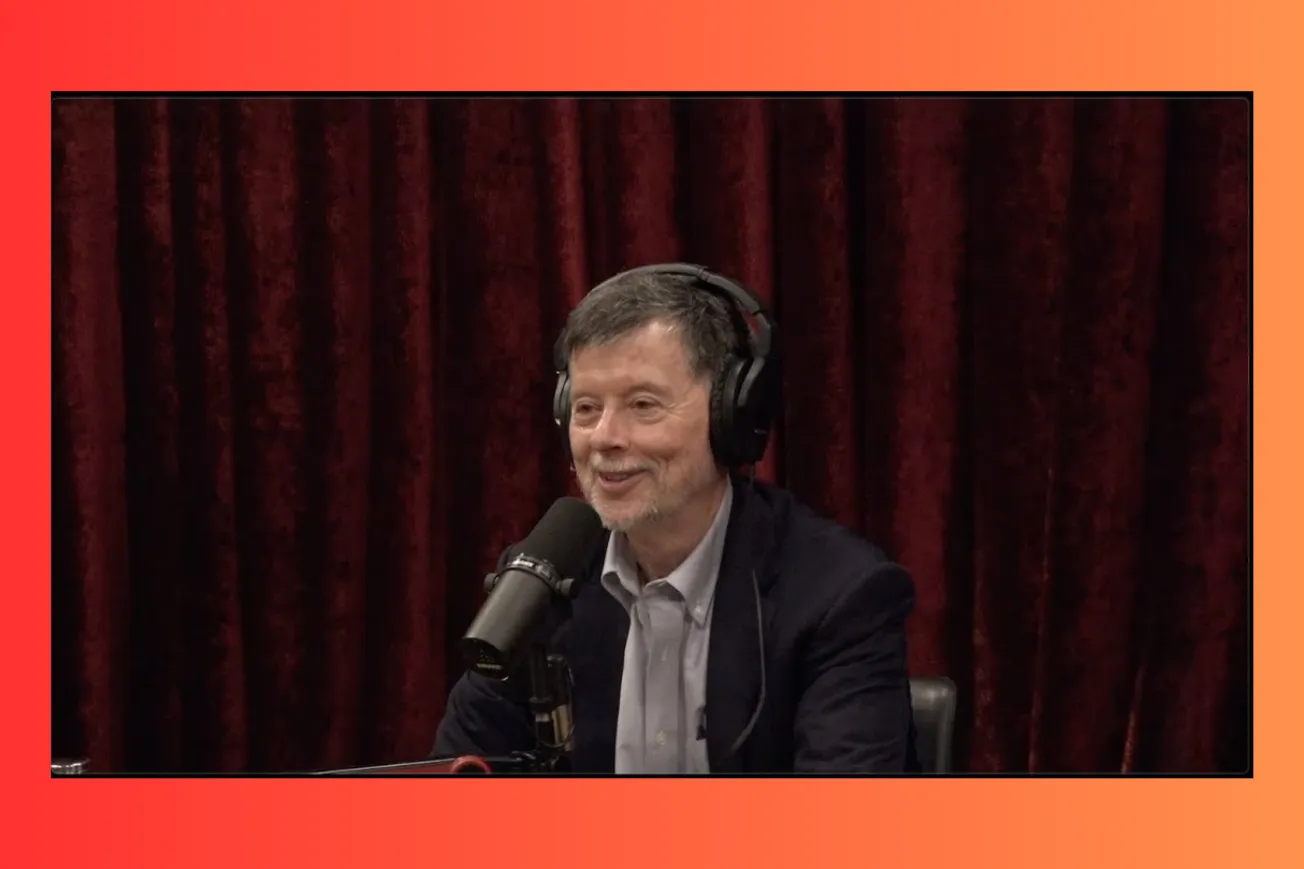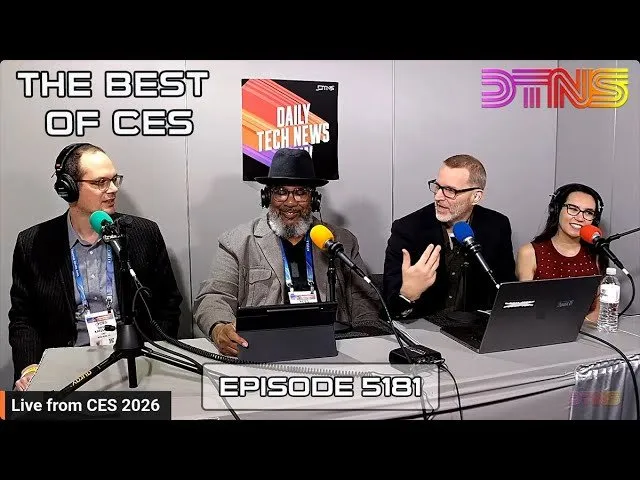Table of Contents
America's greatest documentarian reveals how choosing creative freedom over Hollywood riches built a legacy that spans generations and why his New Hampshire retreat is essential to his process.
Key Takeaways
- Ken Burns deliberately chose PBS over lucrative streaming deals to maintain complete creative control and spend years perfecting each documentary without corporate interference
- His 46-year residence in a tiny New Hampshire village provides the isolation and perspective necessary for creating historically accurate narratives that avoid political bias
- Burns believes the American Revolution was actually a brutal civil war that most people completely misunderstand, with neighbors literally killing neighbors across ideological lines
- The filmmaker's approach treats historical figures as complex, flawed humans rather than sanitized heroes or villains, using what he calls "negative capability" to hold contradictions in tension
- His documentaries require 4-10 years of production time, with teams unlocking finished films hundreds of times to incorporate new scholarship and refine every detail
- Burns views his work as serving the two-letter word "us" rather than the capital letters "US," focusing on human intimacy within America's grand historical narrative
The Radical Choice That Built a Documentary Empire
Most people think Ken Burns made a career mistake when he turned down Hollywood after his first Academy Award nomination. When "Brooklyn Bridge" earned critical acclaim in 1982, everyone expected him to pack up and head for Los Angeles or return to New York. Instead, he stayed put in his tiny New Hampshire village, in the same bedroom he's occupied for 46 years.
This wasn't stubborn provincialism. It was strategic genius that nobody understood at the time. Burns recognized something that would escape most ambitious filmmakers: the difference between having resources and having time. A streaming service might give him $30 million to make a Vietnam War documentary, but they'd never give him the 10 and a half years it actually took to create the definitive 18-hour masterpiece that aired on PBS.
- Hollywood would provide massive budgets but demand impossible timelines that make deep research impossible
- Streaming platforms require content that fits algorithmic models rather than historical complexity
- PBS offers something money can't buy: the ability to "marinate ideas" and do deep scholarship dives
- Commercial networks need every scene to serve market-tested entertainment formulas
The irony is beautiful. By choosing what looked like poverty and anonymity, Burns built the most durable documentary career in American media. His Civil War series from 1990 remains the highest-rated program in PBS history, 35 years later. Try finding a Netflix show from even five years ago that people still watch religiously.
Burns understood that great historical storytelling requires what he calls "triangulating various scholarships." You can't just pick one historical perspective and run with it. You need time to find 23 different experts who've spent their lives studying specific aspects of Vietnam, then create screenings where each scholar learns something new from the others. That process takes years, not months.
The Art of Historical Complexity in a Binary World
Here's what separates Burns from every other documentarian: he refuses to let modern politics infect historical analysis. While everyone else tries to make history serve contemporary ideological purposes, Burns approaches his subjects like an umpire calling balls and strikes. He's not trying to prove a point. He's trying to understand what actually happened.
Take his approach to the American Revolution, which most people think they understand but completely don't. We imagine it as American colonists versus British forces, but Burns reveals it was actually a brutal civil war where neighbors killed neighbors over political differences. Families were literally torn apart, with wives losing parents and siblings because they married someone on the opposite side.
The most haunting example involves John Peters, a loyalist who fled Vermont with his wife and infant children when patriots drove them out. He eventually formed a loyalist regiment and found himself fighting at Bennington, where he heard a familiar voice calling him a "damn Tory." It was Jeremiah Post, his childhood best friend and his sister's cousin, who then stabbed him with a bayonet. Peters was "obliged to destroy him" and killed Post with his pistol.
- Real history is messier and more tragic than simplified narratives suggest
- Every major historical event involves impossible moral choices that people had to make with incomplete information
- Modern Americans would likely make similar decisions if placed in those circumstances
- The complexity makes these figures more inspiring, not less
Burns calls this approach "negative capability," borrowing from what the poet Keats said about Shakespeare. It's the ability to hold positive and negative aspects of historical figures in tension without rushing to judgment. George Washington was both an extraordinary leader without whom America wouldn't exist AND someone who made terrible tactical decisions and owned hundreds of human beings he knew he should free.
Why Geographic Isolation Creates Better Art
Burns' decision to stay in rural New Hampshire wasn't just about avoiding industry pressures. It was about maintaining the psychological space necessary for deep creative work. When you live in a place where Academy Awards and Emmy nominations mean nothing to your neighbors, you stay grounded in what actually matters.
Every morning, Burns takes a three-mile walk with his dog through what looks like 18th-century America. This isn't cute countryside tourism. It's a daily reminder of his atomic insignificance in the grand sweep of history, which paradoxically makes him better at his job. The mountains and forests humble him in ways that no amount of critical acclaim ever could.
Nature provides what Burns calls "inspiriting" humility. While city dwellers get lost in the artificial urgency of deadlines and networking events, he experiences the vast indifference of geological time. Standing under stars unpolluted by urban light pollution, you can't help but gain perspective on human conflicts that seemed earth-shattering to the people experiencing them.
- Physical distance from media centers prevents groupthink and fashionable historical interpretations
- Natural beauty reminds creators that their work serves something larger than personal ambition
- Small-town life keeps ego in check better than any amount of therapy or mindfulness training
- Regular exposure to wilderness provides the mental space necessary for processing complex historical narratives
His neighbors judge him not on his latest film but on whether he shoveled the sidewalk for the elderly lady next door. That's the kind of accountability that keeps artistic work honest and prevents the self-importance that destroys so many careers in creative industries.
The Revolution No One Knows
Most Americans think they understand the Revolutionary War, but Burns reveals we've sanitized it beyond recognition. We picture guys in wigs and stockings having polite disagreements about taxation, then fighting some ceremonial battles before achieving independence. The reality was far bloodier and more complex.
The Revolution was actually the fourth global war fought over control of North America, involving more than two dozen European and Native American nations. The Iroquois Confederacy operated as sophisticated political entities with their own diplomatic relationships, not just background players in white people's story. Benjamin Franklin literally studied their democratic confederation when designing what would become the United States government.
The tea dumping incident that everyone knows as the Boston Tea Party wasn't about blaming Native Americans for the protest. The colonists dressed as Indians to declare they were no longer part of the mother country. They were saying "we are Aboriginal now, we belong to this land, not England." It was essentially filing divorce papers through symbolic costume.
- The war killed civilians at rates similar to modern conflicts, not the sanitized battles most people imagine
- Many Native American nations were more politically sophisticated than the European colonists
- Economic interests drove most political positions, just like today
- The Founding Fathers had no idea they would become the "Founding Fathers" - they were just people making desperate decisions under extreme pressure
Burns spends years uncovering these forgotten details because they make the Revolutionary generation more remarkable, not less. Knowing that Washington made terrible tactical mistakes and nearly got himself killed multiple times through reckless bravery doesn't diminish his achievement. It makes his leadership even more extraordinary.
The Craft Behind the Magic
What most people don't realize about Burns' work is the obsessive attention to detail that happens long after most projects would be considered finished. His team will unlock a completed film hundreds of times to incorporate new scholarship or replace a single image that isn't quite right. They'll spend months perfecting the lighting on an archival map so that viewers can follow troop movements more clearly.
This isn't perfectionism for its own sake. It's recognition that demanding someone's attention for two hours, much less 18 hours, is a huge responsibility. Burns knows that most people will only learn about Vietnam or the Civil War through his films, so every detail needs to serve historical accuracy rather than entertainment conventions.
The process requires what Burns calls "4 a.m. courage" - the ability to wake up and calmly handle whatever crisis has emerged overnight. Maybe a key interview subject wants to withdraw their participation. Maybe new archival footage contradicts a major narrative thread. Maybe you discover that a beautiful scene actually undermines the film's structure and needs to be cut entirely.
- Historical documentaries require different skills than entertainment filmmaking because accuracy matters more than drama
- Small details that audiences might not consciously notice can make or break the viewing experience
- Collaborative creative processes produce better results than auteur-driven approaches
- The best historical narratives emerge from years of research, not predetermined story arcs
Burns compares the editing process to making maple syrup: it takes 40 gallons of raw material to produce one gallon of finished product. His team shoots 500+ hours of footage and conducts countless interviews to create 12 hours of television. The art lies in what gets left out as much as what stays in.
Baseball, Boxing, and the American Soul
Some of Burns' most revealing insights come through his sports documentaries, particularly baseball and boxing. These aren't just entertainment diversions - they're windows into fundamental American character traits and cultural evolution.
Baseball uniquely captures something essential about American psychology. It's the only sport where the defense controls the ball, where individual statistics accumulate over generations with consistent meaning, and where the objective is literally to go "home." The stories people tell about baseball games always begin with who took them to see it, making it fundamentally about relationships and shared experience.
Boxing reveals different truths, particularly through figures like Jack Johnson and Muhammad Ali. Johnson became "unforgivable blackness" by defeating white fighters when being heavyweight champion represented ultimate global masculinity. His defiance of racial conventions sparked riots across the country because he refused to accept limitations that society wanted to impose on him.
Ali's story shows how sports figures can embody larger cultural conflicts. When he refused induction during Vietnam, he wasn't just protesting a war - he was rejecting the entire system that demanded he fight people who had never harmed him while being denied basic civil rights at home. His three-year exile cost him his athletic prime but transformed him into a global symbol of principled resistance.
- Sports provide metaphors for larger social and political dynamics that are hard to address directly
- Athletic achievement can challenge racial and social hierarchies in ways that purely political movements cannot
- Individual athletes sometimes embody cultural tensions better than politicians or activists
- Physical competition reveals character traits that emerge under pressure
These stories work because they show ordinary people making extraordinary choices when circumstances demand it. Johnson and Ali weren't trying to become historical figures. They were just refusing to accept limitations that others wanted to impose on them.
The Future of American Storytelling
Burns represents something increasingly rare in American media: sustained, serious attention to complex subjects that can't be reduced to simple narratives or political talking points. His approach offers a model for how democratic societies can maintain shared understanding of their history without falling into either hero worship or cynical dismissal.
The key insight is treating audiences as equals rather than consumers to be manipulated. Burns assumes viewers are intelligent enough to handle complexity and contradiction. He doesn't simplify historical figures into heroes or villains because real human beings are always both simultaneously.
This approach becomes more important as American society fractures along political and cultural lines. Burns' documentaries create what he calls "campfires" where people with different perspectives can gather around shared stories and discuss what happened without immediately retreating to ideological corners.
His PBS platform makes this possible in ways that commercial media cannot. With one foot tentatively in the marketplace and the other proudly outside it, PBS can prioritize truth-telling over profit maximization. Burns can spend a decade on a single subject because the goal is creating lasting value rather than quarterly returns.
The result is work that remains relevant decades after completion. People still discover Burns' films and experience them as revelatory, not because they're perfectly crafted entertainment but because they reveal human truths that transcend their specific historical moments.





